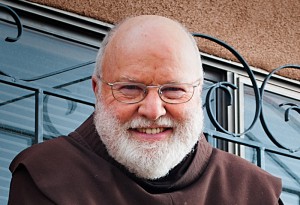I've been listening to a set of talks given by Richard Rohr entitled "Letting Go: A Spirituality of Subtraction."
He says: "As soon as you have even a so-called renewed group, within five years, it's an institution, Here I thought I was the founder of New Jerusalem and very quickly it became an institution. And I thought 'well, this certainly won't happen to us, I'm the founder! I'm just gonna keep it reformed." It doesn't happen! The very nature of a group is it institutionalizes itself. Then it protects itself. It seeks the level at which it wants to live and then it sort of digs its heels in and says 'it's nice here.'"
Wow, mind blown! Do you see what I see here? Can you see in your past what he's talking about here?
Have you ever been part of a church plant or came in during the early stages? I have, I came in in the relatively early stages of New Heights Church in Fayetteville Arkansas. And it was great, fantastic dynamic teaching, good music, living and lively small groups. When we joined, membership was around 200, I think. The church was fairly new, just a couple years old. It was incredible, we loved it so much. Later that year, we moved to the nearby Boys and Girls Club, where the church continues to reside to this day. And the growth continued. When I left, membership was in the 2000 range, with weekly attendance well over 1000.
But even well before that time, things had started taking a turn I was unhappy with. Over the years, the church had hired more and more "pastors" and other full time staff. I had taken over setting up and tearing down the sound system in my first year and in the beginning, that was a vital job and I was invited to staff retreats and Christmas parties and the whole bit. But at a certain point, part time staff like myself were no longer invited to staff events. Was my job any less important? I was managing a crew of five people.
The church officially started to support and oppose political things. Agree or disagree with these stances, I am not okay with a church literally taking sides in political issues and allowing staff to support partisan political efforts on company time.
Let me give you a third example from one of my favorite speakers and writers, Rob Bell. He founded Mars Hill Bible Church in 1999. It quickly grew to be huge and got a big building and hired staff and did all the other stuff. I listened to Rob's sermons for years, right up until he had to leave in 2011. You see, Rob was an excellent dynamic and powerful speaker. But he continued to evolve and grow and the church he founded was amazing and from what I heard was doing amazing renewed things. But pretty quickly it institutionalized. And when Rob continued to grow, he couldn't bring it along with him. Of course I don't know all the details, but I do know that he ended up leaving after publishing Love Wins, which was a book pointing out that the eternal destination of all people is not as certain as many think. One of the stories Rob is fond of telling is that at one point some people in his church tried to have his ordination revoked, just for believing that women could be pastors too!
So the reason why what Richard said blew my mind is that for many years now I have had it in my head or heart or whatever to start a church. And I want that church to be renewed and revolutionary and revived and the whole thing. But, this principle means that eventually it will become my job and as I continue to grow and evolve, the church will start exerting more pressure on me than I can on it. And knowing me, eventually I'll have to leave.
So the challenge is, how do I (we) subvert that institutionalization? How can we create a community that continually destroys and rebuilds itself so that it never becomes stuck in a building? How can we avoid creating a cultural ethos that will eventually backfire on me as it desires to stand still while I desire to keep walking?
I don't have the answers here, but knowing the question is a step in the right direction.

No comments:
Post a Comment